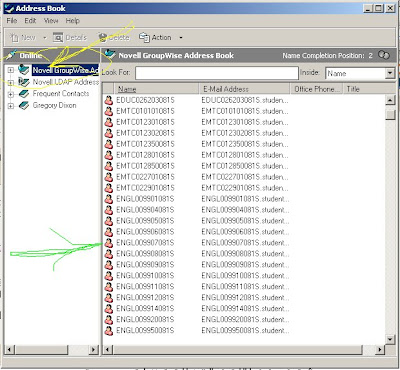The following workshops are being presented by the Kansas City Professional Development Council during February. These are free to KCKCC employees. To register contact Nancy Gordon at ngordon@ kckcc.edu or at 913-288-7140.
Legal Aspects of Supervision
When: Thu, February 5, 1pm – 5pm
Where: KCKCC
Description:This course familiarizes supervisors with the sources of the law, unlawful employment discrimination, justification and defenses to employee complaints, and considers preventive measures and proper language. It reviews sexual harassment and steps a supervisor can take to prevent it. After this workshop, participants will be aware of the varied complex responsibilities and will understand the impact of diversity on the legal aspects of supervision.
Diversity in the Classroom (FDP Core) When: Fri, February 6, 6pm – 9pm
Where: Ottawa - Rm 303-305
Description: This course provides an introduction to multicultural education aims and methods as well as a look at the relevance of local history. Participants will study race, class, and gender inequalities and will probe these issues as co-investigators sharing their own best practices.
Online Instructional Strategies (FDP Elective)
When: Sat, February 7, 9am – 12pm
Where: Ottawa - Rm 303-305
Description: brain research shows that people learn best when they use as many of their senses as possible. With that in mind, participants in this workshop will learn about the science behind this teaching/learning concept, but spend most of their time developing, discussing, and practicing active learning strategies for their own courses. Instructors will leave this workshop with an understanding of different active learning strategies and models as well as how they themselves learn best.
Motivating Employees (SDP Core)
When: Thu, February 19, 1pm – 5pm
Where: DeVry - Room 218
Description: A look at what motivation is, how motivation turns into observable behaviors, the aspects of motivation, and how to elicit desired behaviors. The instructor will present the basic motivational theories and his approach to motivation. This course relies on interaction and participation from class members. Small groups, discussion questions and practical application are mainstays of this course. Participants will come to understand the impact of diversity on motivating employees.
Powerful Non-defensive Communication
When: Tue, February 24, 1:00pm – 4:30pm
Where: UMKC - Admin Center, 5115 Oak - Brookside Rm
Description: forthcoming
 OK, It was more of a manmade tide-pool, and we were only in 6 inches of water, but technically we were "aground" or "stranded" and the water was seawater (or at least brakish). Back 10 to 15 years ago when I first came to Taiwan I used to come down to the fishing port and hang out. Before it was reclaimed and gentrified it resembled more of a wharf you might find in a Batman comic - where the Batman goes to find trouble - more than the touristy resort like atmosphere we have today.
OK, It was more of a manmade tide-pool, and we were only in 6 inches of water, but technically we were "aground" or "stranded" and the water was seawater (or at least brakish). Back 10 to 15 years ago when I first came to Taiwan I used to come down to the fishing port and hang out. Before it was reclaimed and gentrified it resembled more of a wharf you might find in a Batman comic - where the Batman goes to find trouble - more than the touristy resort like atmosphere we have today. 

 5 hours later after his nap it seemed noticeably larger, and the multiple blisters presented. Iknow the pic is bad - but I was holding him in one arm, he was squirming, and I felt like I was being judged harshly for taking a picture at an inauspicous moment.
5 hours later after his nap it seemed noticeably larger, and the multiple blisters presented. Iknow the pic is bad - but I was holding him in one arm, he was squirming, and I felt like I was being judged harshly for taking a picture at an inauspicous moment.  I put up token resistance when Ah-gong (Grandpa in Taiwanese) offered to take him to the Doc. He normally drives more aggressively than the average local and that says something. In the late 90's Taiwan had the highest traffic mortality rate in the world. It's better now but I don't know if they've dropped in the rankings. The trip to the clinic put the fear in me a couple times.
I put up token resistance when Ah-gong (Grandpa in Taiwanese) offered to take him to the Doc. He normally drives more aggressively than the average local and that says something. In the late 90's Taiwan had the highest traffic mortality rate in the world. It's better now but I don't know if they've dropped in the rankings. The trip to the clinic put the fear in me a couple times.



















